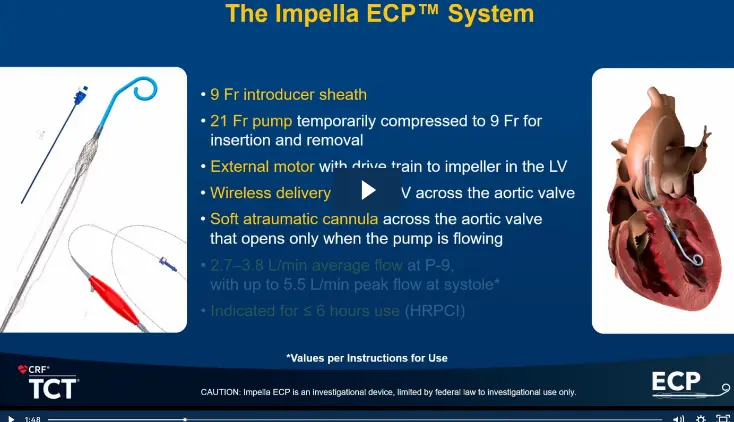Safety & Efficacy, Protected PCI
Vandenbriele Letter: “We Need More Pieces of the Puzzle”
Christophe Vandenbriele, MD, PhD, discusses a letter he wrote in JAMA Internal Medicine urging caution and the need for context when drawing conclusions from retrospective analyses in critically ill patients. In his letter, Prof. Vandenbriele mentions 3 retrospective analyses (Miller et al., Dhruva et al., and Amin et al.) that draw conclusions about increased risk of complications and major bleeding with the use of intravascular microaxial left ventricular assist devices (LVADs) compared to intra-aortic balloon pump (IABP) during percutaneous coronary intervention (PCI) in patients with cardiogenic shock (CS).
In his letter he writes “we must strongly emphasize that the focus on outcome among this critically ill population should be shifted from device-stratified outcome to outcome according to patient selection and case management.”
Prof. Vandenbriele acknowledges that these large trials are important to help us learn how to ask the right questions and design prospective studies to get the answers. However, he explains that if you conclude that some devices are causing more major bleeding than others, you need to understand whether it is because of the device or the management protocol. “I think we need many more pieces of the puzzle before we can dive into those big trials,” he states.
Prof. Vandenbriele emphasizes the importance of conducting different trials for patients with different shock etiologies and different SCAI shock stages. He recommends that institutions pool data, discuss best practices and protocols, and adopt these practices, and then look at outcomes in specific patient populations.
“I think we need a disease-tailored approach but also a patient-tailored approach,” he states, providing the example that very sick patients who are bleeding require different levels of anticoagulation than patients without clotting disorders who are not actively bleeding. Thus, prospective trials need to include clear definitions of major bleeding score and anticoagulation management protocols, and elucidate which devices are appropriate for which types of patients in cardiogenic shock. It is important not to group all cardiogenic shock pathologies together and not to mix data from inexperienced and experienced operators.
Prof. Vandenbriele concludes his letter writing, “we believe that a detailed pathophysiological assessment—including organ function, CS severity, and a more standardized approach toward managing these devices in patients in the intensive care unit—is mandatory before any firm conclusions can be drawn regarding complications associated with the device itself.”
NPS-3931


